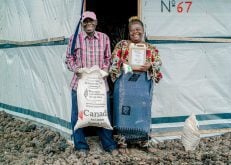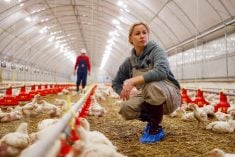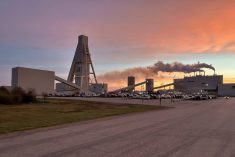BUENOS AIRES (Reuters) — Climate change might eventually cause environmental and economic disasters around the world, but over the decades ahead it could also help boost Argentine soy production, according to a report released by the government on Tuesday.
The report, drawn up with the United Nations Economic Commission for Latin America and the Caribbean, says that, while continued climate change would eventually hurt Argentine farm output, that damage would happen only after decades of higher soy, corn and wheat production.
More carbon dioxide in the atmosphere can actually help these crops, the report says, until temperatures eventually rise too much.
Read Also

B.C. ostriches culled, CFIA confirms
Ostriches on an embattled Edgewood, B.C. farm have been culled after a prolonged legal battle, the Canadian Food Inspection Agency has confirmed.
“Soy will be the crop that benefits the most, because it can withstand three degrees of temperature variation before yields fall,” said Graciela Magrin, a farm expert with Argentina’s INTA agricultural institute, which collaborated on The Economy of Climate Change in Argentina report.
But the point will come where the benefits disappear, she added.
“You cannot expect yields not to suffer if temperatures rise too much,” she said.
Argentina is the world’s No. 3 soybean exporter and its top supplier of soymeal and soyoil.














